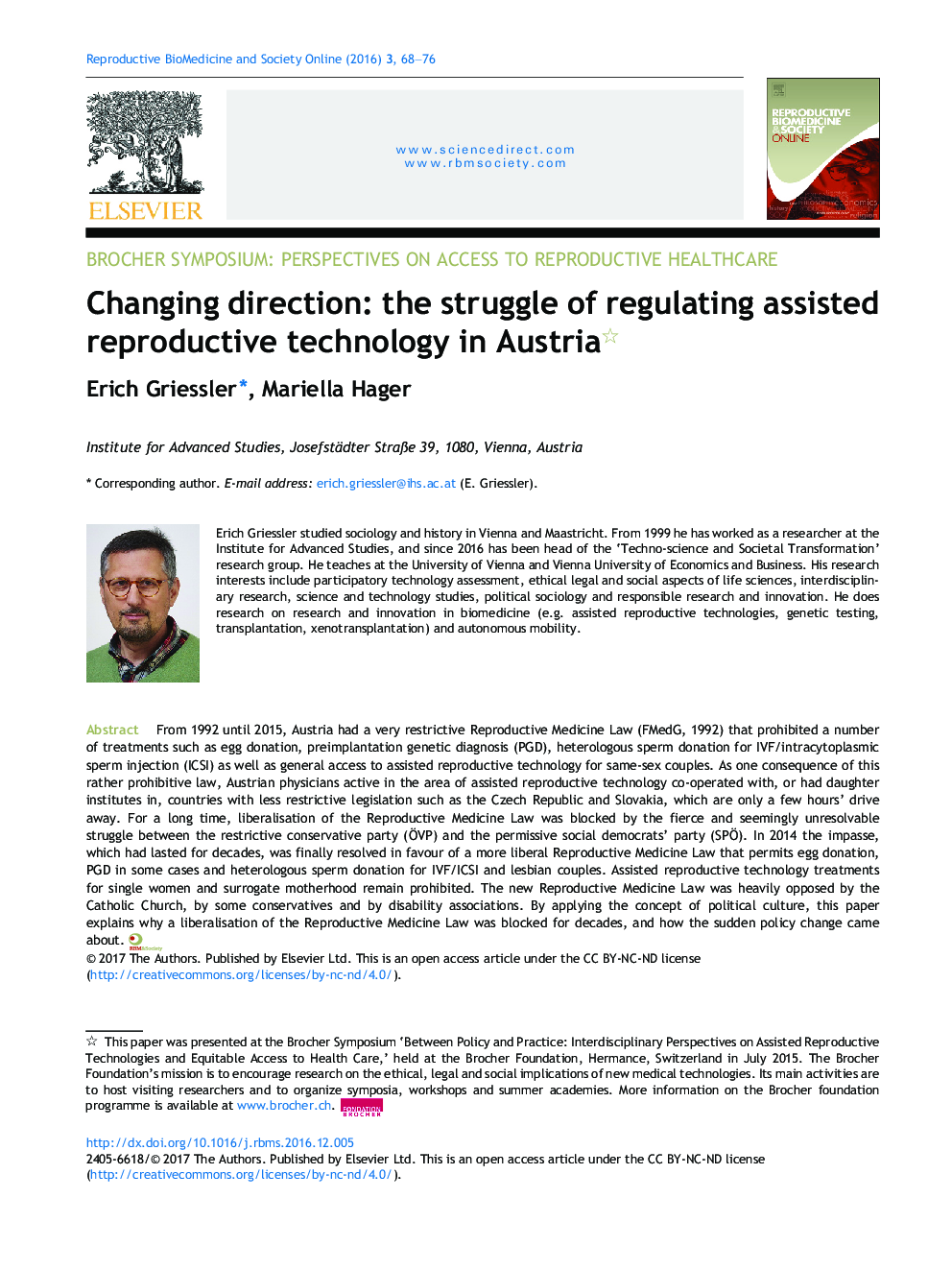| Article ID | Journal | Published Year | Pages | File Type |
|---|---|---|---|---|
| 5123131 | Reproductive Biomedicine & Society Online | 2016 | 9 Pages |
From 1992 until 2015, Austria had a very restrictive Reproductive Medicine Law (FMedG, 1992) that prohibited a number of treatments such as egg donation, preimplantation genetic diagnosis (PGD), heterologous sperm donation for IVF/intracytoplasmic sperm injection (ICSI) as well as general access to assisted reproductive technology for same-sex couples. As one consequence of this rather prohibitive law, Austrian physicians active in the area of assisted reproductive technology co-operated with, or had daughter institutes in, countries with less restrictive legislation such as the Czech Republic and Slovakia, which are only a few hours' drive away. For a long time, liberalisation of the Reproductive Medicine Law was blocked by the fierce and seemingly unresolvable struggle between the restrictive conservative party (ÃVP) and the permissive social democrats' party (SPÃ). In 2014 the impasse, which had lasted for decades, was finally resolved in favour of a more liberal Reproductive Medicine Law that permits egg donation, PGD in some cases and heterologous sperm donation for IVF/ICSI and lesbian couples. Assisted reproductive technology treatments for single women and surrogate motherhood remain prohibited. The new Reproductive Medicine Law was heavily opposed by the Catholic Church, by some conservatives and by disability associations. By applying the concept of political culture, this paper explains why a liberalisation of the Reproductive Medicine Law was blocked for decades, and how the sudden policy change came about.
